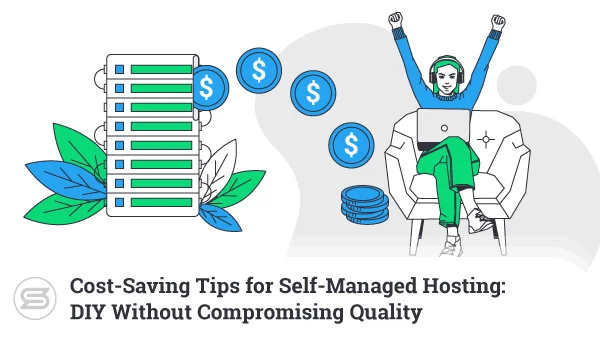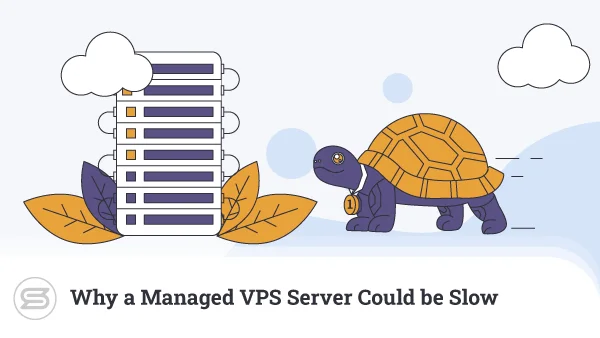Nowadays, more and more businesses are leveraging advanced data analytics. This enables organizations to identify patterns, predict trends, and gain a competitive edge. Hosting a data-sensitive platform, however, might prove challenging. As a business owner, your best chance is betting on managed VPS solutions.
In this article, we’ll discuss leveraging the processing power and storage capabilities of managed virtual private servers for data-intensive workloads and analytics:
What is Data Analytics
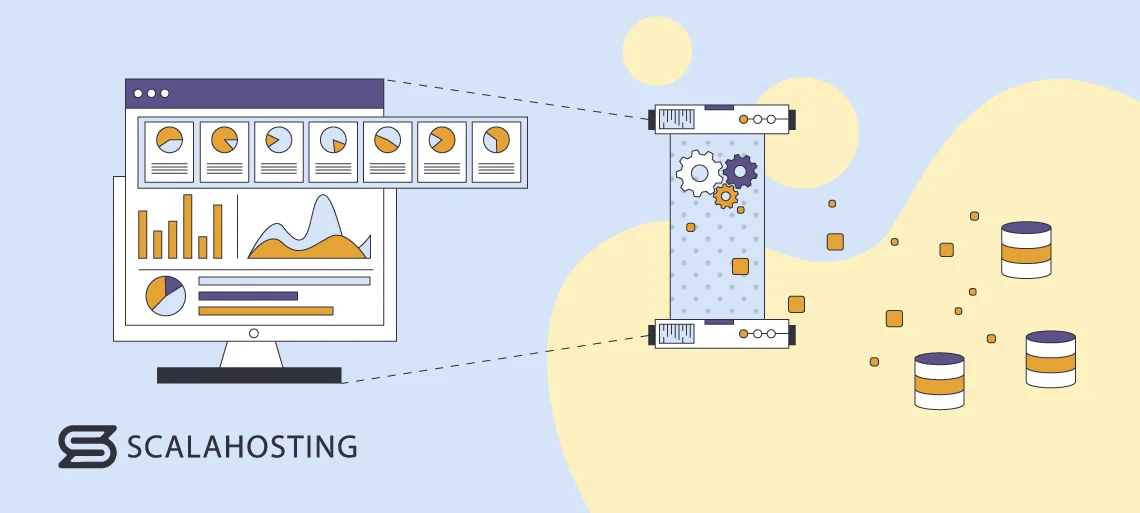
Data analytics is the process of analyzing raw information into patterns and trends that generate actionable conclusions. Companies usually generate vast volumes of data – transactional information, log files, traffic spikes, etc. Businesses use the analytics results to address specific issues, provide personalized experiences for their customers, create marketing campaigns, and more.
Introduction to Managed VPS Hosting for Data Analytics
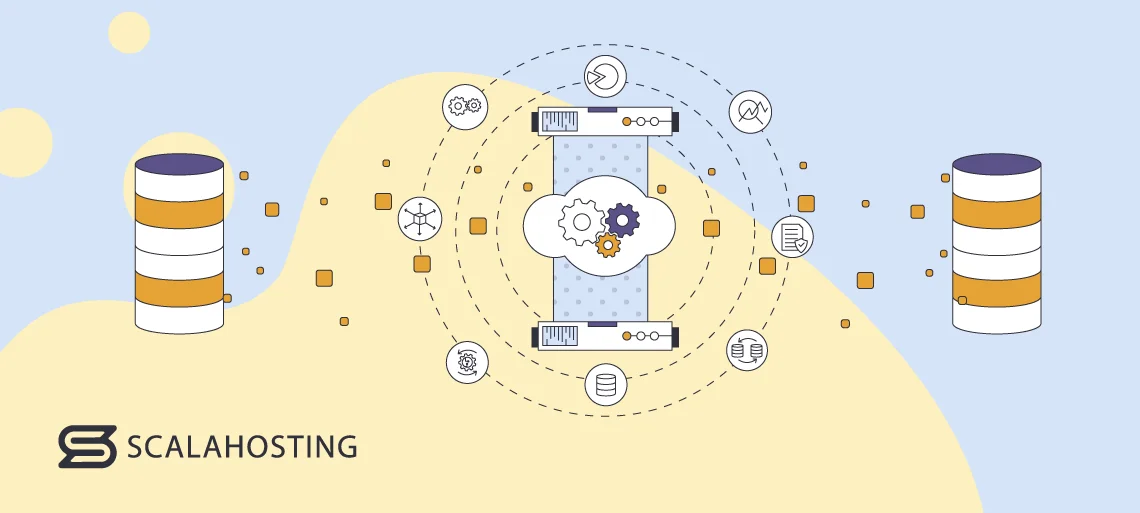
Managed VPS hosting can provide data analytics solutions with a flexible and reliable environment for data-intensive workloads. The benefits are numerous:
Scalability and Resource Allocation
Scalability is an essential part of hosting. Data analytics solutions usually require more resources than shared plans can provide. Managed VPS, on the other hand, enables users to add and remove resources as they see fit. You can easily allocate additional CPU, RAM, еtc. to handle peak demands efficiently.
Allocating said resources is just as important. It means dividing the ones you have between different projects to achieve maximum results. Managed VPS hosting allows you to do so as per the specific requirements of your data analytics processes. That way, everything will run smoothly.
Storage Solutions for Big Data
To put it simply, big data refers to information sets that contain greater variety and are too huge for traditional apps to handle.
Managing and processing large volumes of data is what data analytics is all about. When choosing a Managed VPS service, you can outline the necessary storage requirements and then add more resources, as your platform grows. The support team of your hosting vendor will also keep an eye on your resources and will inform you if it’s time to scale up.
Processing Frameworks and Tools
To perform data analytics, organizations often rely on data processing frameworks and tools. Examples include Apache Spark, Hadoop, Flink, and more.
Managed VPS hosting can easily help you accommodate such technologies. The environment can be customized to support various apps that your business might need. In addition, you can configure several programming languages along with relevant libraries.
Data Visualization and Reporting
In order for the data insights to make sense, they have to be presented carefully. One way to do that is to integrate data visualization and reporting tools. You can use the likes of Tableau, Dundas BI, JupyteR, etc. They will help present findings effectively, making data more accessible to decision-makers.
Most data visualization tools can generate automated reports, which means that the data and analysis you receive will be timely and consistent.
Data Security and Compliance
One of the bigger benefits of Managed VPS packages is that security is guaranteed. While that rings true for most web hosting plans from reputable hosting vendors, with a managed service you get a whole team looking out for your server. They can detect and neutralize threats or inform you of urgent issues before any critical damage is done.
The plans come with encryption for data, along with access controls and user authentication mechanisms. This guarantees the safety of sensitive information. If there are any industry-specific requirements, you can always discuss them with the support team and they’ll provide the best course of action.
Backup and Disaster Recovery
Protecting the critical data used in analytics processes is essential. That’s why most Managed VPS hosting vendors provide regular off-site backups. The data is stored on a separate server so that no harm can come to it.
Of course, users should do their part, too. Creating a reliable disaster recovery strategy will save you a lot of headaches down the road.
Here are a few key points to consider:
- scheduling automated backups
- testing the backups
- setting clear recovery time objectives (RTO) and recovery point objectives (RPO)
- utilizing high-availability solutions
- relying on monitoring and alerting tools
Data Integration and ETL (Extract, Transform, Load)
ETL (Extract, Transform, Load) is the process of combining data from multiple sources and uploading it to a single store that is then integrated into a designated system. It lays the foundation for data analytics, as it makes the information available to intelligence tools.
There are various ETL solutions that you can use, including Hadoop, AWS Glue, and Google Cloud Dataflow.
Monitoring and Performance Optimization
Monitoring and performance optimization are critical for an efficient data analytics platform. The process involves tracking key performance indicators (KPIs) which show how apps are performing. Based on the results, you can detect issues and areas that need improvement. You can then optimize the performance.
Most managed VPS hosting plans allow the integration of monitoring tools to help you track the performance of your data analytics platform.
Managed VPS with ScalaHosting
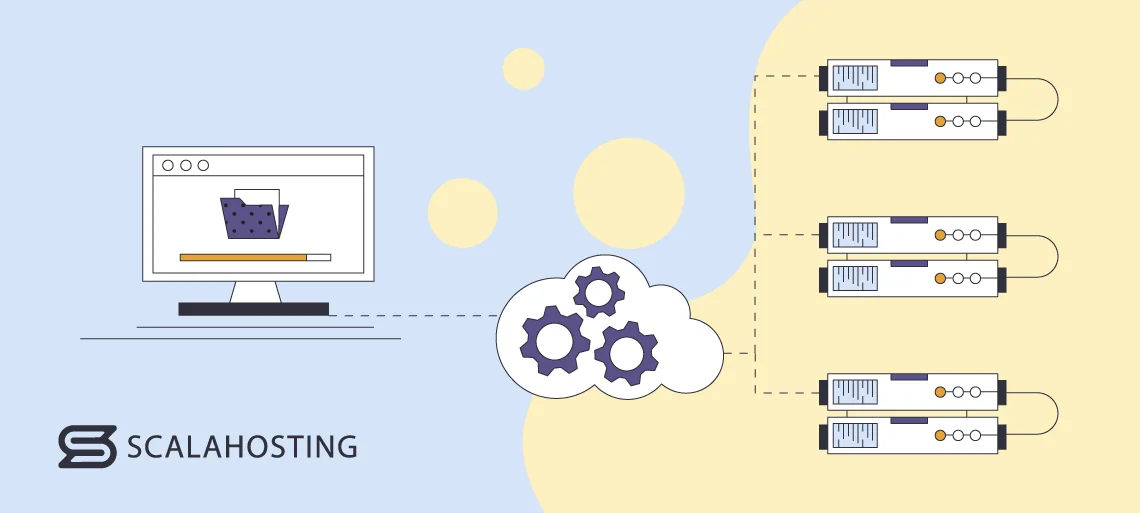
Thanks to more than 15 years of experience in the web hosting world, ScalaHosting has the perfect managed VPS plans for your data analytics solution.
With our plans, you can manage your resources in accordance with traffic spikes and usage peaks. You can also rest assured that your data is in good hands – our in-house developed SShield blocks 99.998% of attacks before they even reach your server.
It comes as part of the SPanel hosting management platform, another tool developed by our company. SPanel enables you to easily manage your server, add apps with just a click, generate on-demand backups, and more.
And last but not least – our managed packages come with 24/7 support. Our team of experts will be there whenever you need them, taking care of your server, performing daily off-site backups, and answering all your hosting questions.


Wrap Up
Managed VPS hosting offers the scalability, flexibility, and security needed to support data-intensive platforms and analytics solutions effectively. Thanks to this service, businesses can unlock the full potential of their data and enjoy a competitive edge in today’s data-driven world.
FAQ
Q: Is managed hosting worth it?
A: Managed VPS hosting is definitely worth it if your business or platform has taken off. You can add or remove resources according to your needs, which means you can easily scale as your website grows. Managed VPS plans also bring advanced security to the table, as you’ve got a whole team of professionals taking care of your server.
Q: What is the difference between managed and self-managed VPS?
A: The main difference between managed and self-managed VPS hosting is the support you receive from the vendor’s team. With a self-managed service, you only get the basic software installed and you’revon your own from there. A managed service gives you a more tailored experience, advanced security, and a support team to monitor your server.
Q: Is VPS better than shared hosting?
A: Unless you’re just starting out, VPS is better than shared hosting. For one, you get more resources for your project. Also, your account is isolated from others on the server, which means your website won’t crash if someone else is hogging the resources or is under a DDoS attack.

